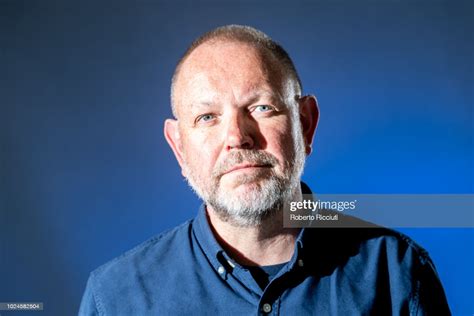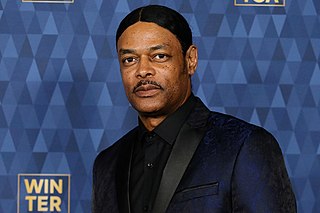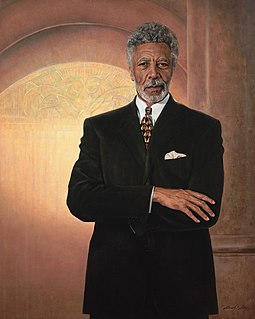A Quote by Toni Morrison
Narrative is radical, creating us at the very moment it is being created.
Related Quotes
We allow folks to divide us. I don't like this Republican/Democrat, left/right, radical/not radical division that is created by folks, particularly and unfortunately in the media. What happened to being a self-reliant, God-fearing American, that loved freedom and the constitution? That's the way I want to be labeled.
I think that's true of real life - we don't ever know anyone completely. Secrets are very important to creating a narrative work that's believable. The characters come into that world with secrets, as happens to all of us. As honest as we try to be in our relationships, we can never completely know someone. From a narrative perspective it's very important and pleasing - you want to have those secrets there. The secret is an essential part of the creation of the novel.
Christians are as subject to complacency as anybody else, and we can certainly settle into repetition and forget that something radical and extraordinary is being asked of us as well - that we hold to an extraordinary promise about how, from moment to moment, something enters the world and enters us, after which everything is different.
For queer people, the personal is very political, just to talk about it in a public space. It's very political just to come out and take up that space and be like, 'This is my narrative. It's not an outsider narrative, and it's not a fetish narrative; it's just my story, and it's worth being told and listened to.'
As many critics of religion have pointed out, the notion of a creator poses an immediate problem of an infinite regress. If God created the universe, what created God? To say that God, by definition, is uncreated simply begs the question. Any being capable of creating a complex world promises to be very complex himself. As the biologist Richard Dawkins has observed repeatedly, the only natural process we know of that could produce a being capable of designing things is evolution.
I guess the wildcard here is Terrence Malick. He supervised me while I was writing the script for Beautiful Country, and he is a genius, although not always easy to follow. What I learned from him is that the narrative can be tracked through all kinds of scenes, that the strong narrative thread is not always the one that is most obvious. Creating narrative with Malick was a bit like chasing a butterfly through a jungle. This approach to narrative is fun and complicated, something that makes the process of writing constantly interesting to this writer.







































